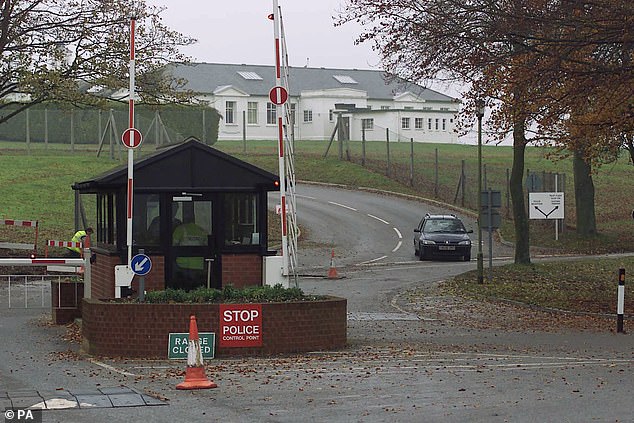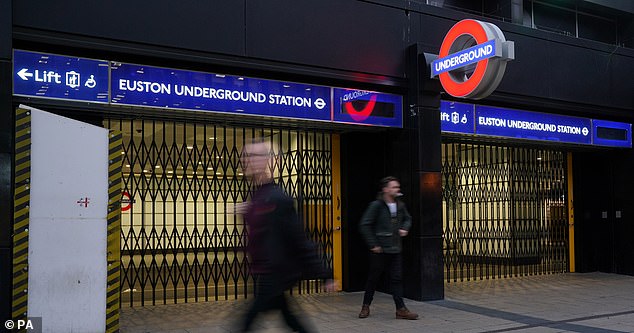A Grenfell fire investigator who killed himself by overdosing as he struggled with his divorce did not commit suicide, an inquest has ruled today.
James Breach, 53, had been conducting the Hackitt Review into Building Regulations and Fire Safety following the London blaze which killed 72 people and led to a sweeping reform of regulations in tower blocks.
On February 13, 2022, the former Porton Down chemical warfare expert had taken a ‘large’ dose of his anxiety medication propranolol in a ‘cry for help’ which tragically had fatal consequences.
Mr Breach, who still worked as a civil servant at the Department for Levelling Up Housing and Communities, called 999 to tell them what he had taken, but when emergency services arrived nearly 90 minutes later, he was found unresponsive, the hearing was told.
At Salisbury Coroner’s Court, Wiltshire, senior coroner David Ridley today concluded a verdict of accidental death.
An inquest ruled today that James Breach, who investigated the Grenfell Fire tragedy, did not commit suicide. Pictured: Porton Down near Salisbury where Mr Breach also worked

At Salisbury Coroner’s Court (pictured), Wiltshire, senior coroner David Ridley today concluded a verdict of accidental death
The inquest heard Mr Breach, of Winterslow, near Salisbury, had been married to wife Samantha Breach, a clinical lead nurse, for 26 years before their relationship started to ‘break down’.
In 2021 he met with his GP to discuss these ‘concerns’ alongside worries he was on the autistic spectrum.
In a statement read to the court, Mrs Breach said there had ‘sadly’ been issues in their marriage and the couple were in the process of divorce at the time of his tragic death.
She said that after unsuccessfully seeing a marriage counsellor, they decided to separate – with Mr Breach ‘initiating proceedings’.
However, Mr Breach’s sister Rebecca Guernero told the hearing: ‘He told me he did not want a divorce but Samantha did.’
She said that while he ‘remained positive about the future’ and was looking to move to a property in the Yorkshire Dales, he was becoming ‘stressed’ about having to move out of the marital home.
Mr Ridley told the hearing: ‘Mr Breach was married but at the time of his death was going through a divorce.
‘At 1.15pm on February 13 last year the ambulance service received a call from Mr Breach where he indicated he had taken an overdose.
‘He was found unresponsive on the sofa at his address.’
Due to ‘resourcing issues’, emergency services only arrived at 2.49pm and declared Mr Breach dead just five minutes later, it was heard.

James Breach had been conducting the Hackitt Review into Building Regulations and Fire Safety following the London blaze (the fire in 2017, pictured) which killed 72 people and led to a sweeping reform of regulations in tower blocks
The coroner ruled there was ‘no evidence’ to suggest an earlier ambulance attendance would have ‘made a difference’.
The inquest heard the cause of death was ‘propranolol toxicity’ – a drug which Mr Breach took to manage his anxiety – and was over 13 times the therapeutic level.
The Head of Clinical Operations and Safety at South Western Ambulance Service NHS Foundation Trust, Richard Garment, told the hearing it treated propranolol overdoses as an emergency needing ‘immediate response to a life threatening condition’.
Other areas treat it as less urgent, the inquest heard, and this classification has been under review.
The hearing was told Mr Breach had taken the overdose 20 minutes before dialling 999 and Mr Ridley said: ‘Mr Breach was unaware of the importance of phoning through and sadly the outcome was as it was.
‘It is now being looked at at the highest level it can be.
‘I think myself and other coroners have aired these concerns that propranolol does have a time critical factor to treatment.
‘Without which, you may as well not bother sending an ambulance, and send a private one to collect people.’
Speaking about the new categorisation of propranolol overdose, he added: ‘There are no guarantees it’s going to be something that works, but at least A and E is the best place possible if they do have a cardiac arrest.’
Delivering a verdict, he continued: ‘I don’t think it was a suicide, I think it was an impulsive act, a cry for help.
‘He didn’t want to die but set that wheel in motion that caused his death after the very large overdose.’
Mr Ridley offered his condolences to Mr Breach’s family after his ‘untimely loss’.


